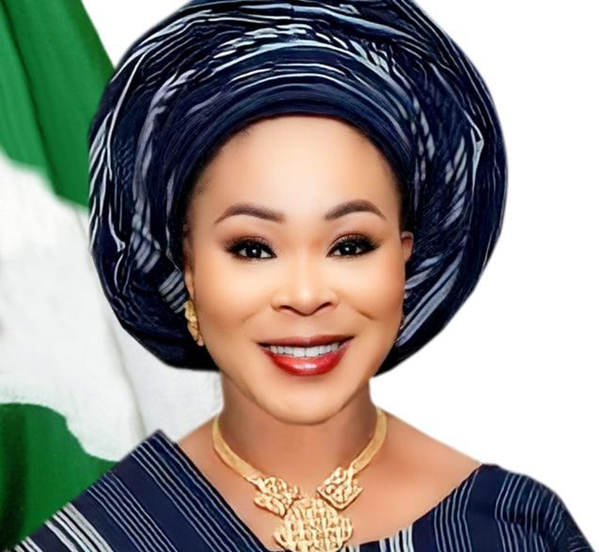
The Minister of Women and Social Development, Mrs. Uju Kennedy-Ohanenye has strongly advocated for concrete actions towards women’s empowerment and gender inclusion in Nigeria.
Speaking at a workshop on the implementation of the National Women’s Economic Empowerment Policy (WEE), attended by eight state commissioners of women affairs in Abuja, Ohanenye emphasised the urgency of the matter.
The workshop, which included representatives from Plateau, Akwa Ibom, Kano, Borno, Kwara, Kaduna and Enugu states, aimed to provide guidelines for the domestication of the policy in states. The WEE, launched in 2023, aims to address the disparities faced by women in accessing financial benefits and opportunities across various sectors, thereby enhancing gender equality and reducing poverty in Nigeria.
Ohanenye stressed the need for a shift in societal narratives and stereotypes against women, highlighting her ministry’s proactive role in empowering women nationwide to reshape these perceptions. She emphasised that true gender inclusion is unattainable without the empowerment of women and called for tangible actions over mere discussions.
Announcing the commencement of the distribution of empowerment packages to 15 states, Ohanenye reaffirmed the government’s commitment to supporting women’s economic empowerment. Furthermore, she unveiled a portal for the registration of women, with over 283,000 members already registered, albeit expressing concern over the low participation of some states in the registration process.
She urged women-focused agencies and organisations at the sub-national level to collaborate with the Ministry of Women Affairs to register community women groups, ensuring that women, particularly those in rural areas, have access to empowerment opportunities.
Expressing concern over the misappropriation of funds meant for women’s empowerment, Ohanenye underscored the urgent need to address this issue to prevent further deprivation among women.
Deputy director of economic growth at the Federal Ministry of Budget and Economic Planning, Mrs. Grace Obi-Okpabi highlighted the lack of inclusion of women’s contributions to economic planning, emphasising the need to recognise their significant role beyond mere “handouts.”
Executive director of RPC, Dr. Judith-Ann Walker lauded the collaboration between the Development research and projects centre (dRPC) and the National Institute for Policy and Strategic Studies (NIPSS), particularly in implementing the WEE policy. She emphasised the importance of partnerships between civil society organisations (CSOs) and government institutions in addressing societal challenges, expressing optimism about the positive impact of the policy.
Director-general of the Maryam Babangida National Centre for Women Development, Mrs. Asabe Bashir stressed the importance of women’s development and access to affordable credit, describing women’s empowerment as both morally and economically imperative. She hailed Nigeria’s pioneering status as the first African country to launch the WEE project and emphasised its significance for societal development.
Director-general of NIPSS, Prof. Ayo Omotayo called for meaningful conversations on women’s inclusion, pledging the institute’s support in implementing the policy at both federal and state levels. He lamented the low enrollment of women in NIPSS courses, emphasising the importance of prioritising women’s empowerment for national development.
The workshop, organised in collaboration with the RPC and NIPSS, underscores the collective effort to advance women’s empowerment and gender inclusion in Nigeria, aiming to effect positive change at grassroots levels where women often face exclusion.
In addition to governmental initiatives, grassroots organizations play a crucial role in empowering women and fostering gender equality. Community-driven projects focusing on education, vocational training and access to finance have shown promising results in enhancing women’s economic participation and social empowerment.
Empowering women is not just a moral imperative but also an economic necessity. Studies consistently show that investing in women yields significant returns, benefiting families, communities and economies at large. By providing women with equal opportunities in education, employment, and leadership, societies can unlock their full potential and accelerate progress towards sustainable development goals.
Moreover, addressing gender disparities requires a multifaceted approach, encompassing legal reforms, institutional policies and cultural shifts. Efforts to combat gender-based violence, promote women’s political participation and challenge harmful stereotypes are integral to creating an inclusive and equitable society.
In Nigeria, as in many other countries, women continue to face systemic barriers to full participation in economic, political, and social life. Discriminatory practices, limited access to resources, and entrenched gender norms constrain women’s opportunities and undermine their rights.
However, progress is possible through concerted action and collective commitment. By prioritising women’s empowerment and gender inclusion, governments, civil society organisations, and the private sector can drive positive change and build a more just and prosperous future for all.
The Minister of Women Affairs’ call for action underscores the urgent need to accelerate efforts towards women’s empowerment and gender equality in Nigeria. Through collaborative partnerships and sustained investment, the country can unlock the potential of its women and harness their contributions to national development. As the nation strives to build back better from the challenges of the past, ensuring women’s full participation and inclusion is not just a matter of rights but a pathway to a brighter and more equitable future for everyone.

